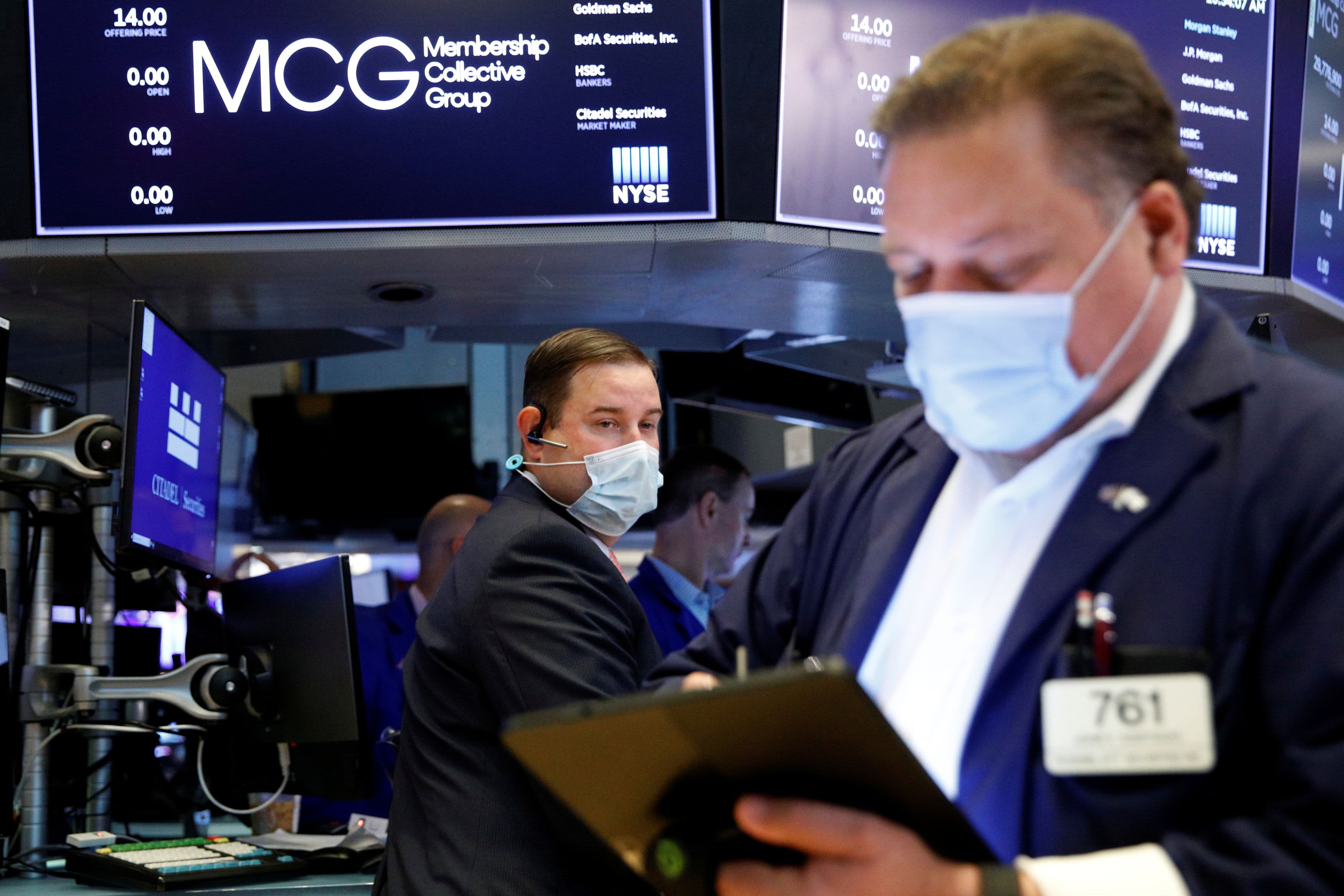Dow falls more than 200 points as jobs data, GM earnings disappoint

U.S. stocks fell on Wednesday morning after the earnings of a major automaker and a private sector jobs report came in lower than expected.
The Dow Jones Industrial Average shed about 280 points, or 0.8%. The S&P 500 slipped by 0.4% while the Nasdaq Composite was flat. The dip comes after the S&P 500 broke a 2-day losing streak on Tuesday to post a record close, bringing its 2021 gains to more than 17%.
Shares of General Motors fell about 7% in early trading, weighing on the broader market, after the automaker missed earnings expectations for the second quarter. The automaker did raise its guidance for a key profit metric for the rest of the year.
The ADP private payroll survey showed a gain of 330,000 jobs for July, well short of the consensus estimate of 653,000. The Labor Department’s official jobs report, which typically has more impact with investors, will be released on Friday.
Second-quarter earnings and economic data have been strong overall, but some investors are worried that the rebound from last year’s pandemic will slow from here.
“Right now I think that the market is moving forward a little cautiously with the triple-peak theory — the potential peak in earnings, peak in economic growth and the potential peak in stimulus looming, both fiscally and from a monetary perspective,” said Chris Osmond, chief investment officer at Prime Capital Investment Advisors.
“While earnings and growth may be peaking, it doesn’t mean that they’re going to go negative, just decelerate,” Osmond added.
This week’s labor market readings come as the delta variant of Covid 19 has spread across the U.S., leading to new restrictions and mandates from some companies and local governments.
“The elephant in the room is the Delta variant. It has not prompted major changes in public health restrictions yet but it could make some people nervous about going back to work, especially in those states in which vaccine hesitancy has held back progress,” James McCann, deputy chief economist at Aberdeen Standard Investments, said in a note. “However, it is probably too soon to see the Delta variant really impinging on the data. It is likely to be drowned out by a broader hiring spree at this stage.”
The 10-year Treasury yield was trading higher near 1.2% on Wednesday but dipped below 1.13% earlier in the session. In recent weeks, lower bonds yields lately have tended to set a more bearish tone for equities, by triggering concerns about the pace of the economic comeback, though that relationship appeared to break down on Wednesday.
Yields and stocks both trimmed their losses after the ISM Services purchasing manager’s index for July came in at a record high, beating expectations.
On the fiscal policy front, Treasury Secretary Janet Yellen will say on Wednesday that enacting the trillion-dollar bipartisan infrastructure bill is key to keeping America’s status as the “world’s pre-eminent economic power.” Her comments come as investors await the final details of the bill, which the Senate is currently haggling over.
A strong earnings season continued after the bell Tuesday with Caesars Entertainment reporting stronger-than-expected results for the second quarter and citing a rebound to pre-pandemic levels of activity. Travel stocks MGM Resorts, Wynn Resorts and Booking Holdings will report after the bell on Wednesday.
Energy stocks struggled in early trading Wednesday, reversing a strong performance in the previous session. Shares of Lyft and Amgen also slid despite beating headline estimates in their quarterly reports
Meanwhile, shares of Robinhood surged more than 60%, continuing a volatile jump after last week’s soft initial public offering.
In the regular trading session on Tuesday, the Dow Jones Industrial Average jumped 278 points, or 0.8%, to 35,116.40. The S&P 500 gained 0.8% to a new all-time closing high of 4,423.15. The Nasdaq Composite rose 0.6% to 14,761.29.




